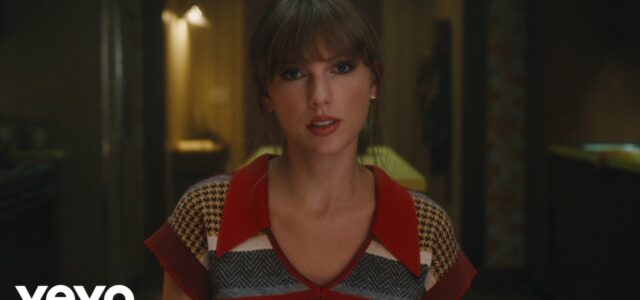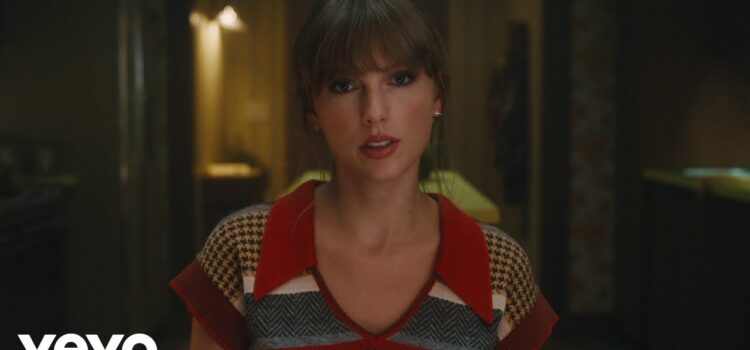


There is always a small degree of comfort knowing that celebrities are relatable, even with their unimaginable wealth and fame. Last week, Taylor Swift released her latest album Midnights. The album, featuring 13 tracks with beats of electronic pop, synth and indie, is what Swift describes as “collection of music written in the middle of the night, a journey through terrors and sweet dreams.”
One particular track was ranked high by music experts and Swiftie fans: Anti-Hero. With self-loathing lyrics layered upon a pop-rock beat, the album’s lead single heads for the radio-pop mainstream while resonating with its listeners for its honest think-aloud of insecurities and late-night thoughts that people often keep to their self.
““Track 3, ‘Anti-Hero,’ is one of my favourite songs I’ve ever written. I really don’t think I’ve delved this far into my insecurities in this detail before,” says Swift in one of her promotional videos posted to TikTok ahead of Midnight’s release. “Not to sound too dark, but, like, I just struggle with the idea of not feeling like a person.”
In rejection of a pity-party, Swift adds, “Don’t feel too bad for me — you don’t need to. But you know, this song really is a real guided tour throughout all the things I tend to hate about myself. We all hate things about ourselves. … So I like ‘Anti-Hero’ a lot because I think it’s really honest.”
In the song, Swift speaks into the insecurities she experiences both as one of a major pop-star, but ultimately, as a human: body dysmorphia, fears of betrayal, creeping ideas of aging and more. One particular Swift lyric from this song is packed with cultural and societal references applicable to the issues facing modern women: “Sometimes I feel like everybody is a sexy baby / And I’m a monster on the hill.”
Though it is speculated that “sexy baby” refers to the 2006 30 Rock scene that mocks the idea that men are more attracted to women who adopt helpless, childlike characteristics, she acknowledges the social epidemic that rejects the idea of getting (and looking) older.
The desire to look younger is not something new. It is a systemic and social issue that affects women across different cultures. There is no shame in wanting to look younger and investing in the procedures and products to help one achieve a more “youthful” look. Swift recognizes that people who are physically younger-looking may have greater, sometimes unfair, advantages in our world; however, with these short lyrics, Swift acknowledges a darker side of the pressures to look younger.
In Botox Nation: Changing the Face of America, Dana Berkovitz states that aging is considered “morally, physically, and aesthetically lacking.” She continues, writing that “the rise of anti-aging consumer culture has profoundly magnified and intensified the moral imperative to fight aging.” Anti-aging is a lucrative industry valued at over $60 billion USD in 2021, and is expected to double in value by 2030, and it is driven by societal pressures that are forcing women to maintain a youthful appearance.
This aside, Swift also describes that she feels as though she is a “monster on a hill,” briefly alluding to a haunting stereotype of being “over-the-hill,” or surpassing one’s prime years. For women, it is often considered once one surpasses the age of 30. Gendered ageism, the intersectionality of gender and ageism, is also a growing concern for women, according to research by Forbes. According to the study, women were found to be more likely to experience being pushed out of the workforce to make room for younger prospects earlier in their career compared to their male counterparts, and even less likely to be re-hired past the age of 55.
The flurry of news surrounding former news anchor Lisa LaFlamme, an award-winning journalist and veteran reporter, is an example of the impacts of implicit ageism in the workforce. LaFlamme was allegedly let go from CTV’s flagship nightly newscast for her pandemic decision to embrace her own signs of aging by growing out her greys. While CTV denied these claims, it was reported that senior officials at CTV still questioned LaFlamme’s decision. LaFlamme’s termination sparked public outcry from supporters for good reason.
As Berkovitz explains, aging is a phenomenon that unfairly affects the female population and “the ways that bodies and faces are marked and experienced as old occur within a larger system of gender inequality in which aging female bodies are increasingly devalued.” LaFlamme, like Swift, reigned successful in her career for many decades, but as women, they risk their hard work and success being overcame by stigmas surrounding natural aging.
Swift may have written Anti-Hero and directed its ’70s-themed music video as a catchy and honest-yet-satirical take on the insecurities experienced by many women. Her lyrics also brought attention to a systemic societal issue that unfairly impacts women, even the most successful ones.






